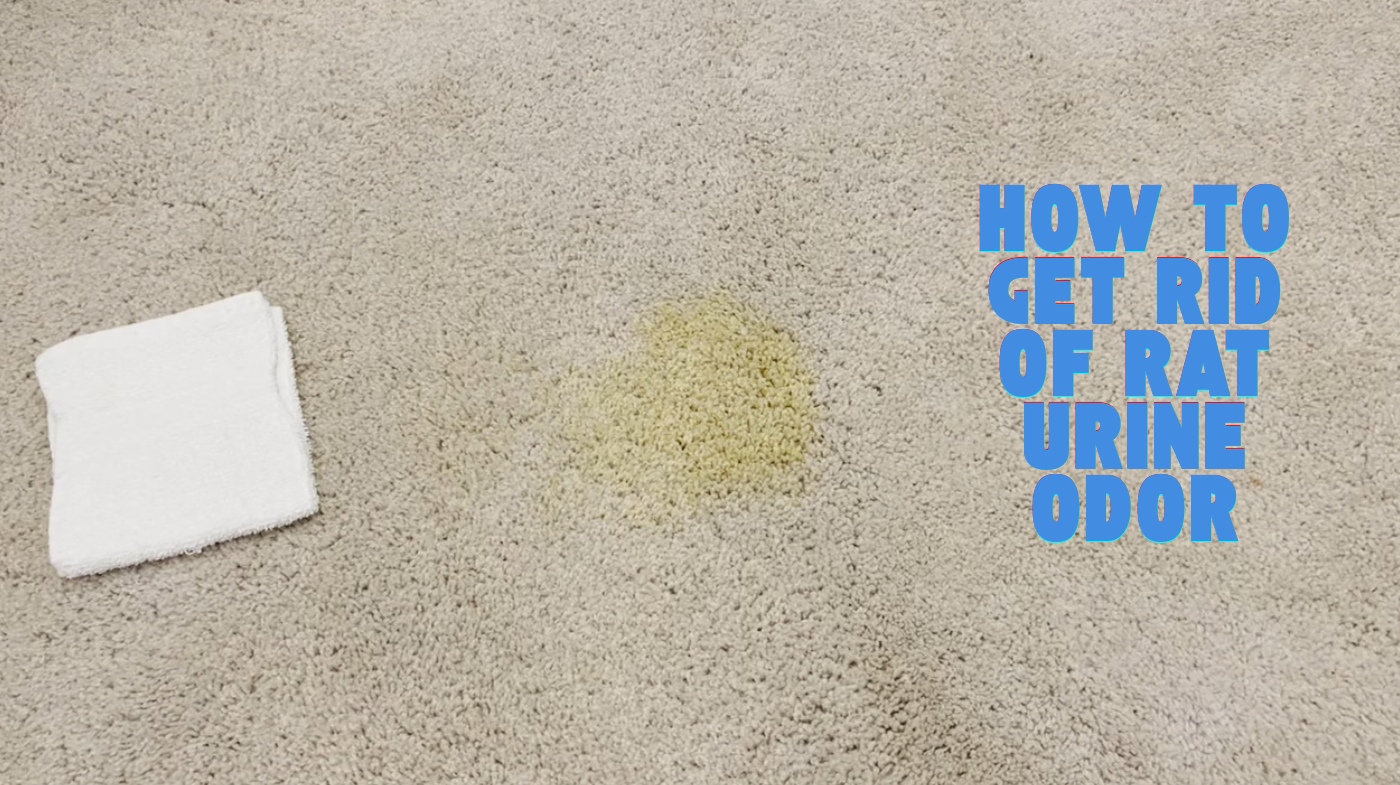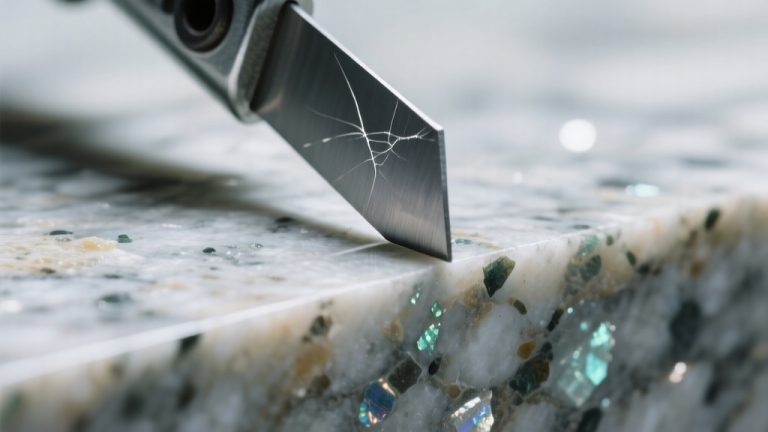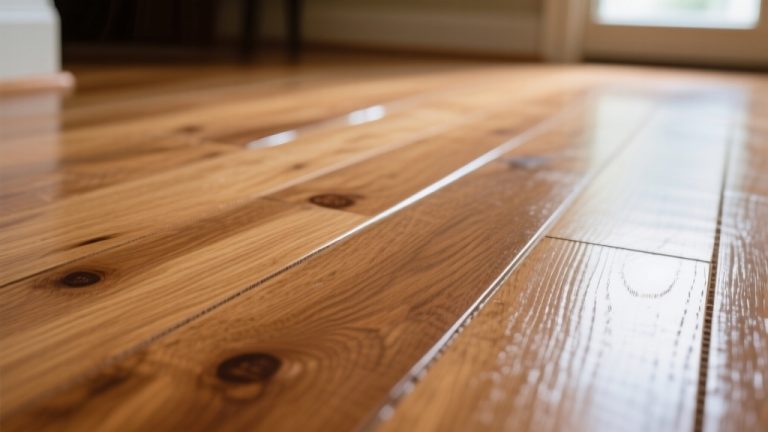How to Get Rid of Rat Urine Odor? Quick DIY Solutions
To get rid of rat urine odor, start by spotting and cleaning affected areas with vinegar or bleach solutions, then disinfect thoroughly.
Use enzyme cleaners to break down odor-causing compounds at their source. Sprinkle baking soda to absorb lingering smells and ventilate the space well with fresh air or air purifiers.
Regularly inspect and seal entry points to prevent reinfestation. These combined steps provide effective odor removal and long-term prevention. Keep exploring to discover advanced techniques for a fresher environment.
Key Takeaways
- Identify and clean all urine stains using vinegar and baking soda to break down acids and absorb odors effectively.
- Disinfect affected areas with diluted bleach or enzyme cleaners to neutralize urine proteins and eliminate odors at the source.
- Use natural remedies like lemon juice and hydrogen peroxide, combined with thorough ventilation, to remove lingering smells.
- Increase airflow by opening windows and using air purifiers with activated carbon filters to dissipate and extract odors.
- Prevent future odors by sealing entry points, maintaining cleanliness, and regularly inspecting areas with UV light for early detection.
Identifying Rat Urine and Initial Cleanup Steps
When you suspect a rat infestation, identifying the distinct musky or ammonia-like odor of rat urine is your first step to confirming their presence.
Rat urine’s strong smell comes from urea breaking down into ammonia, especially noticeable in attics, basements, or hidden corners.
You can spot brown or black urine stains alongside droppings, gnaw marks, and oily smudge trails on walls or furniture.
Listen for scratching sounds at night, which often accompany infestations. Begin your cleanup by thoroughly inspecting dark, less accessible areas with a flashlight to find urine clusters and other signs.
Remember to look up, down, and all around these areas to detect all possible rodent travel pathways. Mark these hotspots for targeted attention.
Removing solid debris carefully with gloves reduces contamination risks. Proper identification and initial cleanup are vital to effectively tackling rat urine odor and preventing further health hazards.
Using FDA-approved cleaning agents ensures safer and more effective removal of contaminants during the cleanup process.
Using Strong Cleaning Solutions for Disinfection
After identifying and removing visible rat urine and debris, the next step involves disinfecting affected areas to eliminate lingering bacteria and odors.
You can use a bleach solution diluted 1:10 with water for effective disinfection. Always wear gloves and ensure proper ventilation while scrubbing surfaces thoroughly.
Rinse afterward to remove bleach residue and prevent damage or odors. Repeat applications may be necessary over a day for strong odors to be fully eliminated.
For persistent smells, consider using odor-neutralizing solvents to achieve more permanent odor removal.
Alternatively, white vinegar offers a natural, milder option that neutralizes odors but doesn’t kill all pathogens.
Hydrogen peroxide oxidizes urine molecules, reducing odors and disinfecting with less toxicity than bleach, but test surfaces first for discoloration.
Baking soda helps absorb odors after cleaning but don’t mix it with vinegar, as this reduces effectiveness. Follow safety precautions, rinse well, and dry surfaces completely to prevent mold or bacterial growth.
Effectiveness of Enzyme Cleaners on Urine Odor
You’ll find that enzyme cleaners work by breaking down the proteins in rat urine, targeting the odor at its source rather than just masking it.
To get the best results, apply the cleaner according to the label instructions and allow it to sit for a few hours before wiping the area. Using biodegradable cleaning solutions can also enhance environmental safety during the cleaning process.
Consistent application may be necessary, especially with persistent odors or heavy contamination.
However, it is important to note that complete removal of rats is crucial to fully eliminate the odor, as ongoing urination will continue to produce smells.
How Enzymes Work?
Although urine odors can be stubborn, enzyme cleaners effectively break down the uric acid and proteins causing the smell rather than just masking it.
These enzymes catalyze the breakdown of urine components into odorless gases like carbon dioxide and ammonia, eliminating the source of the odor.
Their effectiveness depends on thorough application and adequate drying time to allow complete enzymatic action.
Unlike household cleaners, enzyme cleaners contain specific enzymes needed to break down uric acid, which is water-insoluble and bonds tightly to surfaces.
Proper cleaning techniques and safety precautions are important, similar to those used when handling oven cleaning materials.
| Action | Target Substance | Result |
|---|---|---|
| Hydrolysis | Uric acid salts | Breaks crystals causing odor |
| Proteolysis | Urine proteins | Reduces odor intensity |
| Bacterial action | Organic molecules | Eliminates odor-causing bacteria |
| Evaporation | Byproduct gases | Removes odor through evaporation |
Using enzyme cleaners correctly guarantees permanent odor removal instead of temporary masking.
Application Tips
When applying enzyme cleaners to tackle rat urine odor, giving the product enough time to work is essential for success.
Allow the cleaner to sit on the affected area for at least 2 to 3 hours to break down urine proteins effectively.
Avoid wiping or disturbing the surface before this time ends to maximize enzyme activity. Focus on thoroughly treating contaminated areas to reduce odor persistence, as enzyme cleaners may not fully remove odors from absorbent materials like furniture or fabrics thorough treatment.
Clean the area of debris beforehand and apply the cleaner liberally to cover all urine residues. Porous materials like fabrics may require multiple applications and additional treatments.
Always follow the manufacturer’s directions for dilution and sit time, and avoid mixing enzymes with harsh chemicals, which can reduce effectiveness.
Using the wrong cleaner can damage sensitive surfaces, so it is important to choose products formulated for the specific material, especially for porous surfaces.
Proper ventilation during and after application helps dissipate odors. Using enzyme cleaners correctly ensures superior odor removal compared to conventional methods.
Natural Remedies to Neutralize Rat Urine Smell
You can tackle rat urine odor naturally by using common household items like vinegar and baking soda, which effectively neutralize smells and absorb moisture.
Lemon juice offers a fresh, acidic boost to eliminate lingering odors. Hydrogen peroxide oxidizes and breaks down odor-causing compounds.
To enhance airflow and reduce persistent smells, it is helpful to open windows and ventilate the affected area.
Using eco-friendly cleaning methods ensures the environment remains safe while effectively combating odors.
Vinegar and Baking Soda
How can you effectively neutralize the persistent odor of rat urine using natural remedies? Start by using white vinegar, which breaks down the acidic compounds causing the smell and disinfects the area.
Apply vinegar with a cloth, let it sit, then allow it to dry completely. Since rat urine contains proteins and uric acid that contribute to its strong odor, targeting these compounds is essential for effective odor removal.
Ensuring proper air circulation during and after treatment helps dissipate lingering odors more quickly.
Next, use baking soda to absorb lingering odors by sprinkling it liberally and leaving it for several hours before vacuuming thoroughly.
Follow these steps for best results:
- Apply vinegar first to break down urine acids; let it dry fully.
- Sprinkle baking soda over the treated area to absorb odors.
- Vacuum baking soda completely after several hours to remove residues.
Lemon Juice and Peroxide
Following the use of vinegar and baking soda, natural acidic and oxidizing agents like lemon juice and hydrogen peroxide offer additional ways to tackle lingering rat urine odors.
Lemon juice neutralizes odor by overpowering it with a fresh citrus scent, best applied after initial cleaning. It is also advisable to ensure regular maintenance of the affected area to prevent buildup that can worsen odors.
Hydrogen peroxide breaks down organic compounds, disinfecting and removing stains but requires care on colored surfaces.
Combining both enhances odor removal through complementary actions. It is important to identify and eliminate the source of the odor to ensure these remedies effectively neutralize the smell and do not simply mask ongoing urine deposits source identification.
Enhancing Odor Removal With Ventilation and Extraction
Although cleaning removes much of the rat urine residue, enhancing odor removal requires effective ventilation and air extraction methods.
You need to increase air exchange to reduce odor concentration and prevent molecules from lingering in confined spaces.
After cleaning, open windows and doors for several hours to speed drying and odor dissipation. Using air purifiers with activated carbon filters or negative ion generators can further extract odor-causing compounds.
For persistent odors, repeated applications of a neutralizing solution ensure complete breakdown of urine residues. Maintaining consistent airflow supports the prevention of odor buildup in enclosed areas.
To optimize odor removal:
- Keep ventilation continuous post-cleaning to disperse residual odors and moisture.
- Clean and ventilate air ducts and vents to avoid odor recirculation.
- Employ extraction devices cautiously in unoccupied spaces for thorough neutralization.
Preventing Future Odors Through Maintenance and Control
To prevent rat urine odors from returning, you must establish a consistent maintenance and control routine that targets both infestation sources and environmental factors.
Regularly inspect areas like attics, basements, and behind appliances using UV light to detect early urine stains, as high concentration spots can be identified this way.
Using a soft brush or vacuum with a brush attachment can help remove loose dirt and debris from these areas to improve cleaning effectiveness.
Seal entry points with durable materials such as steel wool and caulk to block rat access. Keep storage areas clean, store food tightly sealed, and manage outdoor debris and vegetation to reduce rat habitats.
Applying a thin layer of protective coatings on metal surfaces near these areas can help prevent corrosion caused by environmental exposure.
Use rat-proof trash containers and remove garbage frequently to avoid attracting rodents. Employ mechanical traps and natural deterrents like peppermint oil consistently, and consider professional pest control for persistent issues.
Maintain routine cleaning with enzyme-based products to neutralize odors effectively and schedule periodic deep cleans in problem zones.
Always ensure thorough rinsing and drying of cleaned surfaces to prevent residue buildup and further odor retention.
Frequently Asked Questions
Can Rat Urine Cause Health Problems Beyond Odor Issues?
Yes, rat urine can cause serious health problems beyond just odor. You might experience allergic reactions like sneezing, coughing, or asthma attacks due to protein allergens in the urine.
It also carries bacteria and parasites that can lead to infections such as leptospirosis or lungworm disease.
To protect yourself, always wear gloves and a mask when cleaning, use enzyme-based cleaners, and control rat infestations promptly to minimize health risks.
How Long Does Rat Urine Odor Typically Last Without Treatment?
You should know that rat urine odor can linger for weeks if left untreated. Typically, the smell peaks within a few days and can last anywhere from several days up to multiple weeks, especially in humid or poorly ventilated areas.
The odor intensifies with larger infestations or on porous surfaces like carpet. To prevent prolonged discomfort, addressing the source promptly and improving ventilation is vital for reducing odor duration effectively.
Are There Any Pets Safe Cleaning Products for Rat Urine?
Yes, you can use pet-safe enzymatic cleaners designed specifically for rat urine. These products break down urine molecules instead of just masking odors, making them highly effective.
Look for bio-enzymatic concentrates like Twinzyme or cruelty-free options such as Kids ’N’ Pets Instant All-Purpose Stain & Odor Remover.
They’re non-toxic, biodegradable, and safe for pets and kids. Always apply directly to affected areas and repeat treatments if needed for best results.
Does Rat Urine Smell Vary by Rat Species or Diet?
You’ll notice that rat urine odor varies by species and diet. Different rat species produce distinct urine scents due to unique chemical compositions and proteins, affecting odor intensity and profile.
Meanwhile, diet influences urine smell by altering metabolites and bacterial flora, which can intensify or change odors.
Can Professional Pest Control Services Guarantee Odor Removal?
You shouldn’t expect any professional pest control service to guarantee complete odor removal without fully eliminating all rats first. Even the best treatments can’t promise permanent results if rodents remain or if urine has soaked into porous materials.
Professionals combine pest removal with enzyme-based cleaning and follow-up visits to improve results. However, persistent odors might require multiple treatments and material replacement. Patience and thoroughness are key to effective odor control.
Freshness Secured: Say Goodbye to Rat Urine Odor
Getting rid of rat urine odor takes persistence and the right approach. Remember, “an ounce of prevention is worth a pound of cure.”
Start by identifying and thoroughly cleaning affected areas with strong disinfectants and enzyme cleaners. Use natural remedies and guarantee proper ventilation to neutralize lingering smells.
Finally, maintain your space and control rodent access to prevent future odors. By staying proactive, you’ll keep your environment fresh and odor-free for good.







